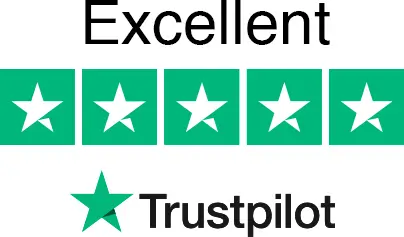Key Takeaways
- Every UK employer must provide a clear, legally compliant grievance policy that follows the ACAS Code of Practice to ensure complaints are handled fairly and transparently.
- A robust grievance policy reduces the risk of workplace disputes escalating to employment tribunals, shielding your business from serious legal and financial risks.
- The ACAS grievance policy framework requires a written grievance procedure, a transparent employee complaint process, and prompt, fair resolution meetings.
- Ignoring or failing to follow the ACAS Code can lead to increased tribunal compensation awards—up to 25% higher—if your process is deemed unfair.
- Keep your grievance policy under regular review to guarantee compliance with current UK employment law and evolving ACAS guidelines.
- Our platform offers a free, expert-reviewed ACAS-compliant grievance policy template, plus step-by-step guidance tailored for UK employers.
- Go-Legal AI is rated Excellent on Trustpilot with over 170 five-star reviews and growing.
- Including clear clauses on confidentiality, scope, informal resolution, and timelines is vital for preventing misunderstandings and ensuring legal compliance.
- Leveraging Go-Legal AI’s platform makes it easy and affordable for small businesses and startups to create, update, and manage ACAS-compliant employment documents.
What Does the ACAS Grievance Policy Require from UK Employers?
Handling workplace complaints can be daunting, especially if you’re worried about the cost and risk of employment tribunals. Many UK businesses lack a clear, well-communicated grievance policy, exposing them to unnecessary disputes and legal action.
The ACAS grievance policy sets the baseline for fair, transparent workplace complaint handling. To comply, every employer must have a written procedure that gives employees a clear route to raise complaints—and explains how these will be investigated and resolved. By following the ACAS Code, you reduce the risks of legal claims, boost morale, and foster a culture of trust.
With Go-Legal AI, you can access a free, expertly drafted ACAS-compliant grievance policy template, plus actionable advice designed for startups and SMEs. It’s the simplest way to achieve peace of mind and meet your legal obligations—without costly solicitors.
What is a Grievance Policy and Why Do UK Employers Need One?
A grievance policy, sometimes called a workplace grievance procedure, is a written document explaining how employees should raise concerns and how those concerns will be handled. Typical issues include bullying, harassment, discrimination, pay, or breaches of contract. In England and Wales, every employer is expected to provide an easily accessible, up-to-date grievance policy that meets ACAS best practice.
Without this policy, managers and staff may be left in the dark—putting your business at greater risk of misunderstandings, inconsistent handling, and expensive claims.
What Does the ACAS Grievance Policy Require from Employers?
The ACAS Code of Practice on Discipline and Grievance Procedures, while not law, is the gold standard for how grievances are handled in England and Wales. Employment tribunals expect you to follow it and may penalise you if you don’t.
Key ACAS grievance policy requirements include:
- A written procedure explaining how grievances are raised and handled.
- A fair, step-by-step approach for investigating each complaint.
- The right for staff to be accompanied at formal grievance meetings.
- Clear timescales for responding and progressing cases.
- A right of appeal for dissatisfied employees.
To get started quickly, use our free, expert-reviewed ACAS-compliant grievance policy template or generate a tailored policy for your business needs.
Key Clauses to Include in Your ACAS-Compliant Grievance Policy
A strong workplace grievance policy must contain clear, legally sound clauses covering all procedural requirements set out by ACAS. Including the following ensures clarity, consistency, and risk reduction:
| Clause | What It Does | Why It Matters |
|---|---|---|
| Statement of Policy | Confirms fair treatment for all grievances | Builds staff trust and confidence in management |
| Scope & Eligibility | Sets out who the policy applies to (e.g. temp, full-time, interns) | Prevents disputes over who’s covered |
| Informal Resolution | Encourages addressing grievances informally before escalation | Reduces workplace tension; lowers legal risk |
| How to Raise a Grievance | Sets out how and to whom complaints should be submitted | Prevents lost or unaddressed complaints |
| Process & Timetable | Details each procedural step and deadlines | Ensures consistent, fair, and timely handling |
| Right to Be Accompanied | Explains the right to a colleague or union representative | Meets statutory minimums and protects employee rights |
| Investigation Process | Outlines how facts will be gathered and assessed | Supports transparent and impartial decision-making |
| Decision and Outcome | Details how and when the outcome will be communicated | Builds transparency and certainty |
| Appeal Process | Offers a clear route to contest the outcome | Enforces fairness and meets legal requirements |
| Confidentiality & Records | Explains data handling, privacy, and who has access | Ensures GDPR compliance; prevents breaches of privacy |
What’s the Difference Between a Grievance Policy and a Disciplinary Procedure?
Grievance procedures and disciplinary processes serve different purposes, though both are critical in workplace management. A grievance policy gives staff a structured way to raise concerns about their working conditions, colleagues, or decisions affecting them. A disciplinary procedure, in contrast, sets out how management addresses potential misconduct or underperformance by employees.
Keeping the two processes separate is vital for transparency, legal compliance, and employee trust.
Step-by-Step Guide: How to Handle an Employee Grievance Under the ACAS Code
The following ACAS-aligned steps will help your business manage grievances confidently and consistently:
- Encourage informal resolution: Motivate staff to resolve minor concerns directly and promptly before resorting to formal action.
- Grievance is raised in writing: Employee submits a formal complaint, typically by letter or email, to their manager or designated contact.
- Acknowledge and schedule a meeting: Confirm receipt within a few days and arrange a formal grievance meeting as soon as possible.
- Hold a formal meeting: Give the employee a fair opportunity to present their case and share evidence. The employee has the right to be accompanied.
- Investigate thoroughly: Gather all relevant facts, witness accounts, and documentary evidence.
- Make and communicate your decision: Write to the employee with your decision, rationale, and any actions to be taken.
- Appeals process: If unsatisfied, the employee may appeal, with the appeal considered by a different manager or panel.
⚡ Get legal tasks done quickly
Create documents, follow step-by-step guides, and get instant support — all in one simple platform.
🧠 AI legal copilot
📄 5000+ templates
🔒 GDPR-compliant & secure
🏅 Backed by Innovate UK & Oxford
Grievance Policy Timeline: Quick Reference Table for ACAS Compliance
Timeframes are pivotal for fairness and ACAS compliance. The ACAS Code doesn’t fix strict deadlines but expects all grievances to be managed “without unreasonable delay.” Below is a realistic, ACAS-aligned guide for each stage:
| Step | ACAS Recommended Timeframe |
|---|---|
| Acknowledge grievance | Within 2–3 working days |
| Arrange and hold grievance meeting | Within 5–10 working days |
| Complete investigation | As soon as possible (1–2 weeks is typical) |
| Communicate outcome | Within 2–5 days after meeting/investigation |
| Begin appeals process (if required) | Within 1 week of appeal request |
| Notify employee of appeal outcome | Within 5–10 working days after appeal hearing |
Common Mistakes Employers Make with Grievance Policies (And How to Avoid Them)
Even the most well-intentioned employer can face difficulties if procedures falter. Here are the most frequent pitfalls:
| Mistake | Risk | Solution |
|---|---|---|
| Outdated/non-ACAS-compliant policy | Higher tribunal risk and legal exposure | Use our policy checker and regular ACAS updates |
| No formal written procedure | Uncertainty, increased workplace disputes | Create a clear written policy today |
| Not considering informal settlement | Wasted resources on unnecessary escalations | Train leaders to encourage early solutions |
| Omission of appeals process | Breach of natural justice, risk of challenge | Review your policy for robust right to appeal |
| Not upholding the right to be accompanied | Breach of statutory employee rights | Provide clear manager briefings, update docs |
| Poor or missing records | Difficulty defending claims, weak evidence | Use secure, digital records tools |
| Delayed action or responses | Staff dissatisfaction, reputational harm | Set clear timeframes and monitor compliance |
What Happens if You Ignore the ACAS Grievance Procedure? Legal Risks Explained
Disregarding the ACAS grievance policy seriously increases your exposure to legal claims and financial penalties. Employment tribunals will always look at whether your business followed the ACAS Code. If not, you risk:
- Tribunal compensation awards being increased by up to 25%.
- Employee resignations or constructive dismissal claims.
- Significant loss of reputation and public trust.
- Weakening your legal defence in any related claims.
Our instant policy review scans your current grievances process for compliance gaps—in minutes—so you can act before an issue escalates.
How Go-Legal AI Simplifies ACAS Grievance Policy Compliance
Go-Legal AI delivers practical, affordable support for all employers who want to comply with the ACAS Code and UK employment law. Our platform features:
- Free ACAS-compliant grievance policy template: Draft a thorough, up-to-date policy tailored for your business in minutes.
- AI-powered policy review tools: Instantly flag missing clauses or legal risks in your existing policy for peace of mind.
- Guided step-by-step workflow: Manage every stage of grievance handling, from first complaint to final appeal, all in a secure, central hub.
- Always-on legal guidance: Get instant, plain-English answers to your questions about workplace grievances, 24/7.
- Policy update alerts: Whenever the law or ACAS guidance changes, you get notified—ensuring your documents are never out of date.
Frequently Asked Questions
Do employers have to follow the ACAS grievance procedure by law?
You aren’t legally bound to follow the ACAS Code, but employment tribunals expect you to do so. If your business doesn’t and you lose a case, the tribunal may raise compensation by up to 25%.
What should a workplace grievance policy include under the ACAS Code?
Your grievance policy must outline how to raise a complaint, the process and timescales for handling it, the right to be accompanied at meetings, how investigations are run, and the appeals process.
How do I write a grievance policy for my small business?
Start with an ACAS-compliant template or use our builder to create a policy tailored to your needs, ensuring you cover the purpose, scope, procedure, investigation, accompaniment rights, appeals, and confidentiality—all in clear, plain English.
What happens if an employee is unhappy with the grievance outcome?
They should be given the right to appeal. The appeal must be considered by someone who wasn’t previously involved in the case, following your written procedure.
How long should the grievance process take?
Complete the process “without unreasonable delay”—typically from complaint to outcome within a few weeks, if you follow the recommended timeline.
Who can accompany an employee at a grievance meeting?
Employees are legally entitled to bring a trade union representative or work colleague, as set out in the Employment Relations Act 1999.
Can you use a free template for a workplace grievance policy in the UK?
Yes—just make sure it’s current and ACAS-compliant. Adapt every template to suit your organisation, using tools like our template builder.
Is it legal to handle grievances informally without a policy?
Informal resolution is encouraged, but a written grievance policy is still essential to ensure ACAS compliance and reduce legal risk.
What are the risks of not reviewing your grievance policy regularly?
You could miss vital legal or ACAS changes and expose your business to compliance breaches, higher claims, and reputational damage.
How do you keep grievance matters confidential in a small business?
Limit access to those directly involved, make confidentiality expectations clear in your policy, and store records securely in line with UK GDPR.
Build Your ACAS-Compliant Grievance Policy with Confidence
A robust, up-to-date grievance policy is your best defence against costly legal action, poor workplace morale, and reputational damage. This guide has made it clear how an ACAS-compliant policy is vital for every UK employer—ensuring fairness, transparency, and reduced legal risk for your business.
Don’t risk relying on out-of-date templates or assumptions. Use our platform to create, check, and manage your grievance policy with ease. Protect your business, empower your management team, and support your staff—get started now with our free, lawyer-drafted grievance policy template and intuitive workflows.










































